Filter News
Area of Research
- Advanced Manufacturing (1)
- Biology and Environment (21)
- Building Technologies (1)
- Clean Energy (31)
- Climate and Environmental Systems (1)
- Computational Biology (1)
- Computational Engineering (3)
- Computer Science (15)
- Fusion and Fission (3)
- Fusion Energy (2)
- Isotopes (25)
- Materials (28)
- Materials for Computing (8)
- Mathematics (1)
- National Security (30)
- Neutron Science (14)
- Nuclear Science and Technology (8)
- Quantum information Science (6)
- Supercomputing (96)
News Topics
- (-) Computer Science (184)
- (-) Cybersecurity (35)
- (-) Isotopes (47)
- 3-D Printing/Advanced Manufacturing (116)
- Advanced Reactors (34)
- Artificial Intelligence (87)
- Big Data (50)
- Bioenergy (88)
- Biology (96)
- Biomedical (58)
- Biotechnology (21)
- Buildings (54)
- Chemical Sciences (59)
- Clean Water (29)
- Climate Change (94)
- Composites (25)
- Coronavirus (46)
- Critical Materials (24)
- Decarbonization (74)
- Education (3)
- Element Discovery (1)
- Emergency (2)
- Energy Storage (107)
- Environment (192)
- Exascale Computing (36)
- Fossil Energy (5)
- Frontier (41)
- Fusion (53)
- Grid (61)
- High-Performance Computing (83)
- Hydropower (11)
- Irradiation (3)
- ITER (7)
- Machine Learning (46)
- Materials (140)
- Materials Science (134)
- Mathematics (6)
- Mercury (12)
- Microelectronics (2)
- Microscopy (50)
- Molten Salt (8)
- Nanotechnology (60)
- National Security (59)
- Net Zero (12)
- Neutron Science (129)
- Nuclear Energy (105)
- Partnerships (40)
- Physics (59)
- Polymers (31)
- Quantum Computing (31)
- Quantum Science (66)
- Renewable Energy (2)
- Security (24)
- Simulation (45)
- Software (1)
- Space Exploration (24)
- Statistics (3)
- Summit (57)
- Sustainable Energy (120)
- Transformational Challenge Reactor (7)
- Transportation (93)
Media Contacts
The United States could triple its current bioeconomy by producing more than 1 billion tons per year of plant-based biomass for renewable fuels, while meeting projected demands for food, feed, fiber, conventional forest products and exports, according to the DOE’s latest Billion-Ton Report led by ORNL.
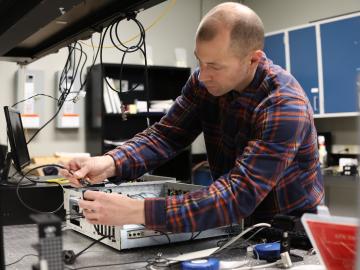
An experiment by researchers at the Department of Energy’s Oak Ridge National Laboratory demonstrated advanced quantum-based cybersecurity can be realized in a deployed fiber link.
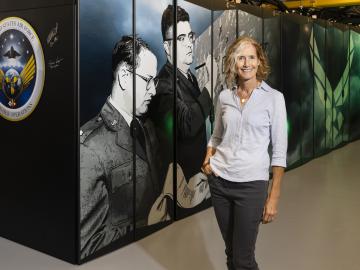
Kate Evans, director for the Computational Sciences and Engineering Division at ORNL, has been awarded the 2024 Society for Industrial and Applied Mathematicians Activity Group on Mathematics of Planet Earth Prize.
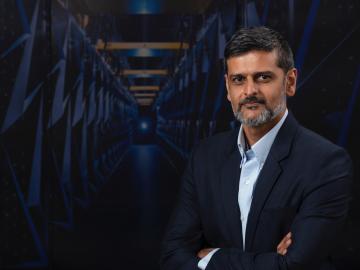
Anuj J. Kapadia, who heads the Advanced Computing Methods for Health Sciences Section at ORNL, has been elected as president of the Southeastern Chapter of the American Association of Physicists in Medicine.
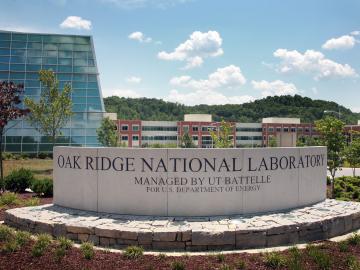
Two different teams that included Oak Ridge National Laboratory employees were honored Feb. 20 with Secretary’s Honor Achievement Awards from the Department of Energy. This is DOE's highest form of employee recognition.

Pablo Moriano, a research scientist in the Computer Science and Mathematics Division at ORNL, was selected as a member of the 2024 Class of MGB-SIAM Early Career Fellows.

A key industrial isotope, iridium-192, has not been produced in the U.S. in almost 20 years. DOE's Isotope Program and QSA Global Inc. announced a joint product development agreement to initiate U.S. production of iridium-192.
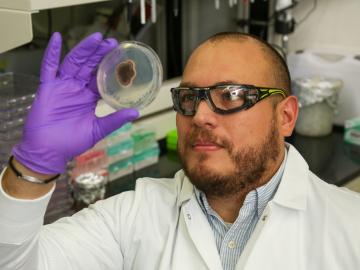
New computational framework speeds discovery of fungal metabolites, key to plant health and used in drug therapies and for other uses.

In summer 2023, ORNL's Prasanna Balaprakash was invited to speak at a roundtable discussion focused on the importance of academic artificial intelligence research and development hosted by the White House Office of Science and Technology Policy and the U.S. National Science Foundation.
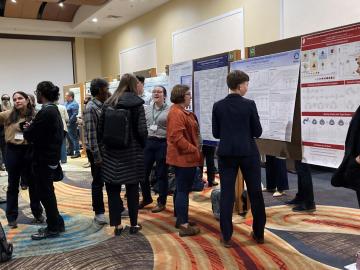
The 21st Symposium on Separation Science and Technology for Energy Applications, Oct. 23-26 at the Embassy Suites by Hilton West in Knoxville, attracted 109 researchers, including some from Austria and the Czech Republic. Besides attending many technical sessions, they had the opportunity to tour the Graphite Reactor, High Flux Isotope Reactor and both supercomputers at ORNL.




